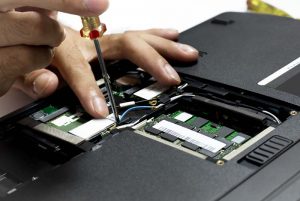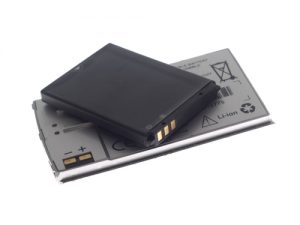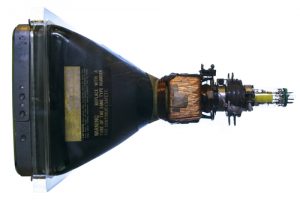 A second e-scrap company has been released from an Arizona CRT abandonment lawsuit targeting upstream suppliers of the material.
A second e-scrap company has been released from an Arizona CRT abandonment lawsuit targeting upstream suppliers of the material.

 Colin Staub was a reporter and associate editor at Resource Recycling until August 2025.
Colin Staub was a reporter and associate editor at Resource Recycling until August 2025. A second e-scrap company has been released from an Arizona CRT abandonment lawsuit targeting upstream suppliers of the material.
A second e-scrap company has been released from an Arizona CRT abandonment lawsuit targeting upstream suppliers of the material.
 Future funding levels for the U.S. EPA are one step closer to certainty after lawmakers in the U.S. House of Representatives approved government spending outlined in a dozen agency-specific budget bills this month.
Future funding levels for the U.S. EPA are one step closer to certainty after lawmakers in the U.S. House of Representatives approved government spending outlined in a dozen agency-specific budget bills this month.

Bob McCarthy
There was a clear thread woven through E-Scrap 2017: Reuse and refurbishment activities are dramatically increasing in the end-of-life electronics management industry. One executive at the center of the shift outlined steps to move into device repair successfully.
 Bolstering domestic markets is a logical way to reduce exports, and that concept is behind a just-announced program that’s tied to an e-scrap certification.
Bolstering domestic markets is a logical way to reduce exports, and that concept is behind a just-announced program that’s tied to an e-scrap certification.
 Lithium-ion batteries will come to play a far larger role in the scrap electronics stream in the future, and an expert says companies will need to adapt to the challenges and opportunities these materials present. Continue Reading
Lithium-ion batteries will come to play a far larger role in the scrap electronics stream in the future, and an expert says companies will need to adapt to the challenges and opportunities these materials present. Continue Reading
 Seven e-scrap entities have been accused of questionable downstream practices by the Basel Action Network, after tracking devices showed they were involved in moving materials that were eventually exported to developing countries.
Seven e-scrap entities have been accused of questionable downstream practices by the Basel Action Network, after tracking devices showed they were involved in moving materials that were eventually exported to developing countries.
 A unique, non-toxic leaching technology that’s been deployed in Canada is set to roll out at the site of an electronics manufacturer in Tennessee.
A unique, non-toxic leaching technology that’s been deployed in Canada is set to roll out at the site of an electronics manufacturer in Tennessee.
 Three million pounds of CRT materials sit stockpiled in an Arizona warehouse formerly used by Dow Management, and the current property owner wants upstream generators of the material to pay for its cleanup.
Three million pounds of CRT materials sit stockpiled in an Arizona warehouse formerly used by Dow Management, and the current property owner wants upstream generators of the material to pay for its cleanup.
 The average resale price for desktop computers and laptops has grown over the past two and a half years, according to a report by a prominent ITAD company.
The average resale price for desktop computers and laptops has grown over the past two and a half years, according to a report by a prominent ITAD company.
Continue Reading

State and federal regulators are putting pressure on an Iowa CRT processor they say has illegally stockpiled glass and allowed lead to contaminate the ground.
Continue Reading
